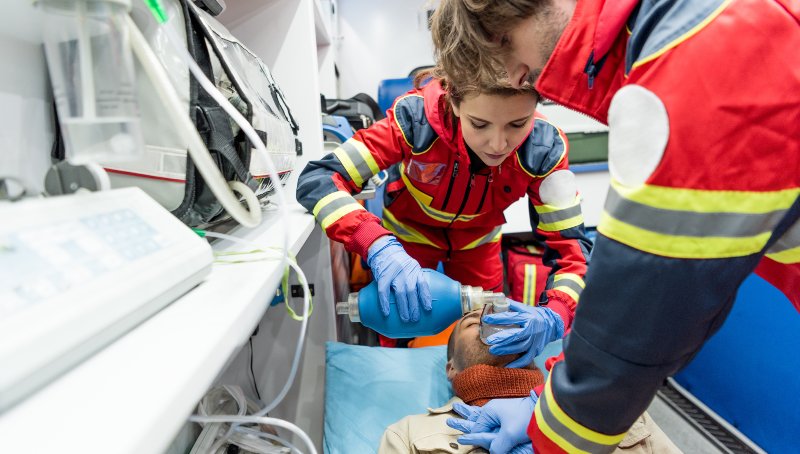When it comes to fear surrounding cocaine overdose, people generally fall into two camps. They are either very fearful that this may happen to them, or someone they know, or they believe that there is no way it could happen to them.
This may be because they are habitual users, or they think they know how to ‘handle’ cocaine. However, the reality is that overdose can happen to anyone, regardless of their intelligence, patterns of drug use, or if their friends are “looking out” for them.
Knowing as much as you can about cocaine overdose, and spreading this information, helps to keep you and other users safe. Continue reading below to know the key facts about cocaine overdose, and what to do if it happens to you, or someone you know.

Knowing what to look for when it comes to cocaine overdose can help protect you and those around you when using cocaine. If you have decided to consume cocaine it is always recommended that you have at least one person present who is sober, and will best be able to monitor your consumption and keep an eye out for any of the below symptoms.
Recognising signs of a cocaine overdose in oneself can be challenging due to the impaired judgement and altered mental state often associated with cocaine use. However, being aware of certain physical and physiological symptoms is crucial.
Physical Sensations:
Mental and Behavioural Changes:
Respiratory Changes
Gastrointestinal Symptoms
Neurological Symptoms
It’s important to remember that individuals under the influence of cocaine may not accurately perceive their own symptoms or the severity of their condition.This makes both assessing your own symptoms, and the symptoms of others difficult when you are under the influence.
This is why ensuring that there is a ‘sober lifeguard’ with you during your use can help to prevent both overdose and dangerous consumption. Cocaine overdoses can also rapidly escalate, and a sober person will best be able to act quickly to reach help.
Recognising the signs of a cocaine overdose in someone else is crucial for providing timely assistance. However, the symptoms of overdose can vary from person to person, and many of the above symptoms are difficult to identify from the outside.
Regarding behavioural changes, keep an eye out for any unusual restlessness or hyperactivity. This can include aggressive, agitated, or erratic behaviour.
For physical signs, notice if they are reporting a pounding or racing heart, a red face, or profuse sweating. Watch to see if they are having difficulty breathing, or are reporting any respiratory distress.
Keep in touch with their mental state, in case they appear to be confused or disoriented. If they lose consciousness, or “pass out”, this is a sign that immediate action must be taken.
Any unusual symptoms such as chest pain, nausea, or vomiting are also indicators that someone is likely experiencing a dangerous overdose from cocaine. Any of the above symptoms would be a green light to contact emergency services and seek medical help.
It is crucial to contact emergency services as soon as you suspect that you may have overdosed on cocaine. Immediate action will protect your life, and seeking emergency medical help is essential.
Do not consume any additional substances while you are waiting in an attempt to counteract the effects of cocaine. This is extremely dangerous and can actually worsen your symptoms and hasten potentially life threatening events.
This includes not attempting to treat the overdose with any “home remedies” or “treatments” that you may have read about online, or heard from others. Cocaine overdoses require professional medical intervention, and home remedies or delay in seeking help can be dangerous.
Once emergency responders have arrived, it is important to be as honest and transparent with them as possible. This includes any information you may have about how much cocaine you ingested, if you have taken anything else, what symptoms you are experiencing, and how long they have been going on for.
Just like with if you think you are experiencing a cocaine overdose, if you think someone else is experiencing an overdose, you can save their life by contacting emergency medical services as quickly as possible. Again, being completely honest with emergency responders will give them the best chance to help and treat the person suffering.
It is important to not leave the person who is suffering alone. Stay by their side until the emergency responders arrive, and remain calm, keeping note of any symptoms that you see so you can communicate these to the ambulance crew.
Make gentle attempts to wake the person and assess their responsiveness. Do not try to “sober them up” or use any home remedies as discussed above. This is especially important when trying to “treat’ the overdose of another person, as you do not know what they are experiencing, and may end up endangering them even further.
While you are communicating this information, try to provide any additional facts you can about how much cocaine you suspect this person ingested, if they have taken anything else, and any other relevant medical information you may have. Emergency responders are not interested in punishing people for drug use, or reporting them; their primary interest is in keeping people alive and well.
The treatment for a cocaine overdose typically involves addressing the symptoms and complications associated with excessive cocaine use. It’s important to note that there is no specific antidote for cocaine overdose, so medical intervention focuses on supportive care and managing the individual’s condition.
Emergency response medical teams will first monitor vital signs including heart rate, blood pressure, respiratory rate, and body temperature. Establishing and then stabilising these parameters will be essential to preventing further complications.
Medication will likely be administered to regulate heart rate and blood pressure, with emergency procedures like cardioversion being considered in more severe cases. Medication could also be used in cases with severe agitation and delirium in order to sedate the patient and prevent them from harming themselves or others.
Ice packs and fans may also be implemented to reduce the overall body temperature. In cases where patients are vomiting, as well as having high body temperatures, medical teams will likely also administer intravenous fluids to maintain hydration and good electrolyte balance.
After a patient’s physical state has been stabilised and they are no longer in immediate danger, a psychiatrist assessment may be conducted to evaluate the individual’s mental health. This is typically followed up after-care that aims to address any underlying mental health concerns as well as potential addiction.

If you or someone you know is struggling with cocaine addiction, reaching out for help is a crucial step towards recovery. Clinic Les Alpes is here to support you on your journey to overcoming addiction and reclaiming a healthier life.
Our fully private rehabilitation facility is located in the Swiss mountains with stunning views of unspoiled meadows and classic Lake Geneva. With access to luxury amenities, you can take those first steps to recovery in comfort and elegance.
In addition to the beauty of the clinic, we have an internationally renowned team with experts in psychiatry, psychology, addiction treatment and medicine, as well as holistic and body focused health and wellbeing. Our interdisciplinary approach ensures that we don’t only treat addictions, but help you to be healthy and well in all aspects of your life.
If you are interested in finding out more about what Clinic Les Alpes have to offer, please do not hesitate in contacting us. We are happy to work together to create a fully personalised treatment plan that addresses your goals and needs.
There are many different symptoms to look out for when it comes to cocaine overdose, and many of these symptoms can be difficult to notice if we are already under the influence. Keeping a sober buddy with you when you use cocaine can help to keep you and others safe.
Cocaine overdose is a serious and potentially life-threatening condition – while knowing all the symptoms and signs can help keep you safe, please do not hesitate to contact emergency services when these symptoms occur.
